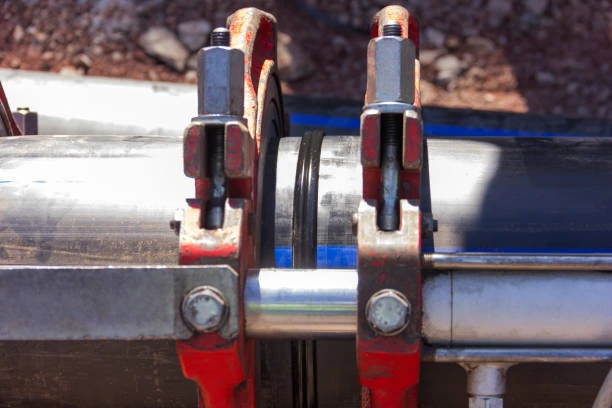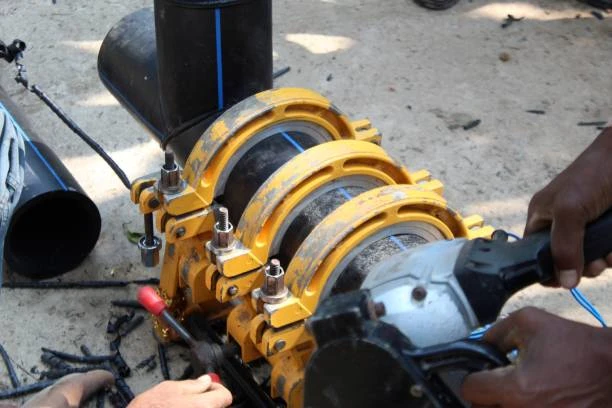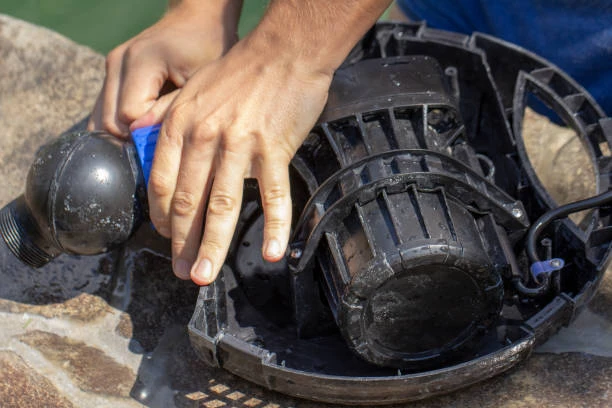The global market for High-Density Polyethylene HDPE pipe is projected to experience significant growth, with an expected increase of USD 6.13 billion between 2024 and 2028. This growth is largely driven by the rising demand for water supply systems worldwide. As industries and municipalities seek efficient and durable solutions for water management, HDPE pipes are becoming an increasingly popular choice.
One of the integral components in the installation of HDPE pipes is the use of pipe press fittings. This article will delve into the factors fueling the HDPE pipes market, the advantages of HDPE pipes and fittings, and how they contribute to modern water supply systems.

Understanding HDPE Pipe
High-Density Polyethylene (HDPE) pipes are know for their strength, flexibility, and resistance to corrosion. These attributes make them ideal for various applications, including water distribution, sewage systems, and industrial uses. HDPE pipes are produce from thermoplastic polymer, providing a lightweight yet durable option that can withstand harsh environmental conditions.
Key Benefits of HDPE Pipe
- Durability: HDPE pipes are resistant to various chemicals and environmental factors, which prolongs their lifespan and reduces the need for frequent replacements.
- Flexibility: The flexibility of HDPE pipes allows for easier installation, especially in challenging terrains or areas with existing infrastructure.
- Cost-Effectiveness: Although the initial investment may be higher, the long-term savings on maintenance and replacement costs make HDPE pipes a financially smart choice.
- Reduced Leakage: The welded joints of HDPE pipes significantly reduce the risk of leaks, enhancing the overall efficiency of water supply systems.
The Role of HDPE pipe Press Fittings
Pipe press fittings are crucial for connecting HDPE pipes effectively. These fittings offer a reliable, leak-free connection that is essential for maintaining the integrity of the entire piping system. The advantages of using pipe press fittings include:
- Quick Installation: Press fittings can be installe rapidly without the need for welding or extensive tools, reducing labor costs and installation time.
- Leak Prevention: The design of press fittings ensures a tight seal, minimizing the risk of leaks that can lead to significant water loss.
- Versatility: Pipe press fittings can be use in various applications, from residential plumbing to large-scale industrial systems.
HDPE pipe Factors Driving Market Growth
Several factors are contributing to the anticipated growth of the HDPE pipes market:
1. HDPE pipe Increasing Demand for Water Supply
The global population continues to grow, leading to an increased demand for fresh water. Municipalities and industries are investing heavily in water supply systems to meet this demand. HDPE pipes are preferre due to their efficiency, cost-effectiveness, and long lifespan.
2. HDPE pipe Infrastructure Development
Many countries are undergoing significant infrastructure development, particularly in emerging economies. The construction of new water supply networks and the replacement of aging systems present substantial opportunities for HDPE pipes and fittings.
3. Environmental Considerations
As concerns about sustainability and environmental impact rise, HDPE pipes are gaining popularity. They are recyclable, and their longevity helps reduce waste associated with pipe replacement.
4. Technological Advancements
Innovations in manufacturing processes and the introduction of advanced pipe press fitting technologies are making HDPE pipes even more appealing. Improved designs and materials lead to enhanced performance and reliability.
Applications of HDPE Pipe
HDPE pipes are use across various sectors, showcasing their versatility:
1. Water Supply Systems
Municipal water supply systems utilize HDPE pipes for their durability and ability to transport large volumes of water efficiently.
2. Sewage and Drainage Systems
The resistance of HDPE pipes to corrosion makes them ideal for sewage and drainage applications, reducing the likelihood of system failures.
3. Agricultural Irrigation
Farmers are increasingly adopting HDPE pipes for irrigation systems, benefiting from their efficiency and long service life.
4. Industrial Applications
Various industries, including chemicals and pharmaceuticals, rely on HDPE pipes for their ability to handle corrosive materials.
Future Outlook
The HDPE pipes market is poise for substantial growth in the coming years. As countries invest in water infrastructure and seek sustainable solutions, the demand for HDPE pipes and related fittings will continue to rise. Pipe press fittings will play a critical role in this growth, facilitating efficient installations and contributing to the overall effectiveness of water supply systems.
Conclusion
The expected growth of the HDPE pipes market by USD 6.13 billion from 2024 to 2028 reflects the increasing demand for effective water supply solutions. The integration of pipe press fittings enhances the performance and reliability of HDPE pipe systems, making them a preferred choice across various applications. As industries and municipalities continue to prioritize efficient and sustainable water management, the future of HDPE pipes looks promising.
Frequently Asked Questions (FAQs)
- What are HDPE pipes?
- HDPE pipes are high-density polyethylene pipes known for their strength, flexibility, and resistance to corrosion, making them suitable for various applications.
- What are pipe press fittings?
- Pipe press fittings are connectors that ensure a leak-free and secure connection between HDPE pipes, facilitating easy installation.
- Why are HDPE pipes preferre for water supply?
- HDPE pipes are durable, cost-effective, and reduce leakage risks, making them ideal for efficient water supply systems.
- How do pipe press fittings contribute to HDPE pipe systems?
- They provide quick and reliable connections that prevent leaks and enhance the overall efficiency of piping systems.
- What industries use HDPE pipes?
- HDPE pipes are use in water supply, sewage, agricultural irrigation, and various industrial applications, showcasing their versatility.


















